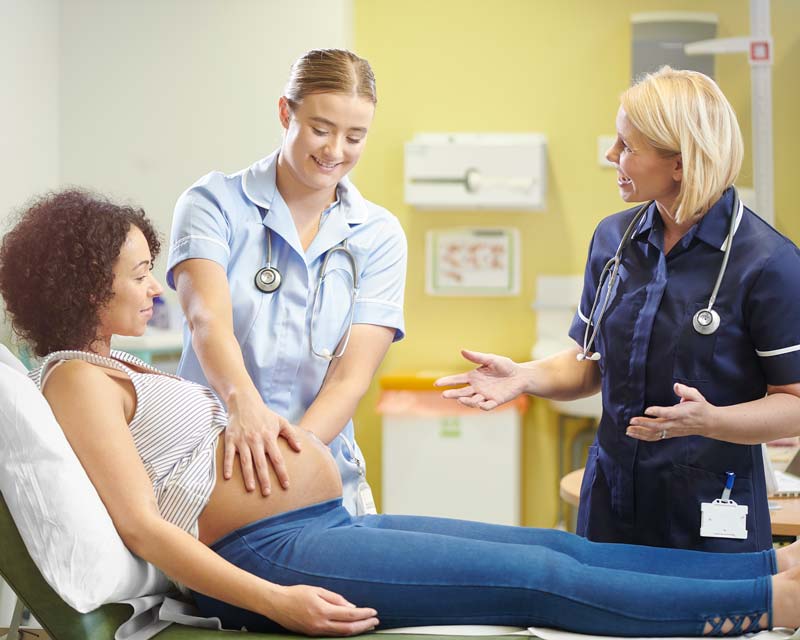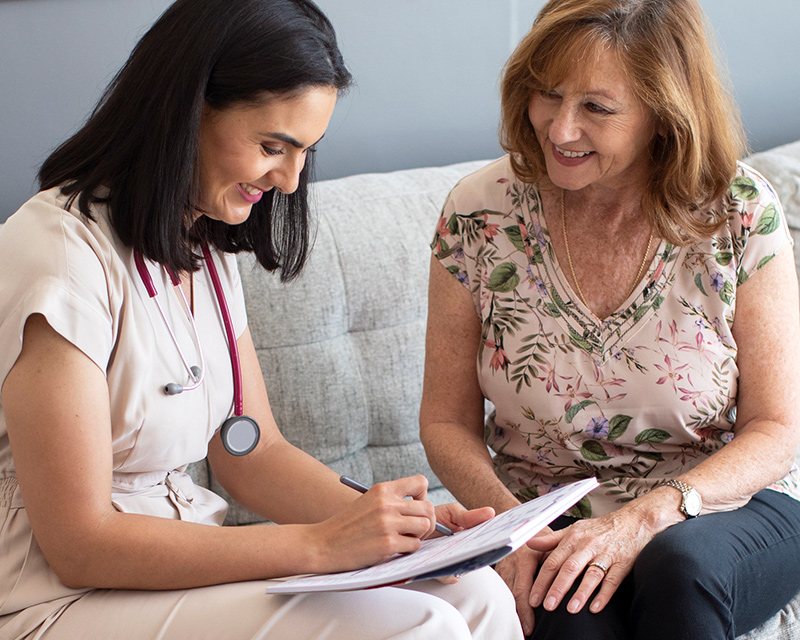
Researchers take next steps to understand COVID-19’s impact on people infected during pregnancy
 Up to a third of a woman’s life is spent postmenopausal, impacting health in multiple ways—yet no medical school rotations are dedicated to menopause. Ohio State Wexner Medical Center Ob/Gyn Cynthia Evans, MD, FACOG, NCMP, is dedicated to improving both practitioner and patient understanding of menopause across the medical center and through her work with the North American Menopause Society (NAMS).
Up to a third of a woman’s life is spent postmenopausal, impacting health in multiple ways—yet no medical school rotations are dedicated to menopause. Ohio State Wexner Medical Center Ob/Gyn Cynthia Evans, MD, FACOG, NCMP, is dedicated to improving both practitioner and patient understanding of menopause across the medical center and through her work with the North American Menopause Society (NAMS).
“Women in menopause can account for up to half of the patient load for many physicians,” Dr. Evans says. “Because menopause can cause such a range of symptoms and impact cardiovascular health, cancer risk, endocrinology, bone density, cognitive function and more, it is a life stage that demands more awareness and understanding across all medical specialties.”
Dr. Evans is just one of approximately 1,300 NAMS Certified Menopause Practitioners in the world. This NCMP designation is awarded to any health care provider—primary care physicians, specialists, surgeons, nurses or others—who complete a competency examination to prove mastery of high-quality care standards for women at perimenopause and beyond. Dr. Evans was also named NAMS Practitioner of the Year for 2020, an honor that recognizes “one current NAMS Certified Menopause Practitioner for outstanding work to his/her patients.”
Dr. Evans has been active in NAMS for over 27 years, including multiple years of service on the society’s Poster, Abstract and Education Committees. “NAMS is a unique resource because it offers scientifically vetted material that is pulled from multiple specialties and reviewed by a team of medical experts,” she explains. “We recognize that a cardiologist might not be exposed to relevant and important menopause information that is published by an endocrinologist, so we organize this content in one comprehensive library for easy access.”
NAMS’ research-based materials include guidebooks, slide sets and the most current studies and articles related to menopause, as well as patient education materials, such as books, videos and handouts. NAMS also provides access to medical consultations and help with difficult patients. “The goal is to encourage all practitioners to treat the ‘whole patient’ and learn to evaluate symptoms considering the role of both menopause and disease processes,” Dr. Evans says.
Patients at Ohio State can receive the kind of comprehensive menopause care that Dr. Evans champions from her or from one of the 35 gynecology providers who see patients at convenient locations across central Ohio.